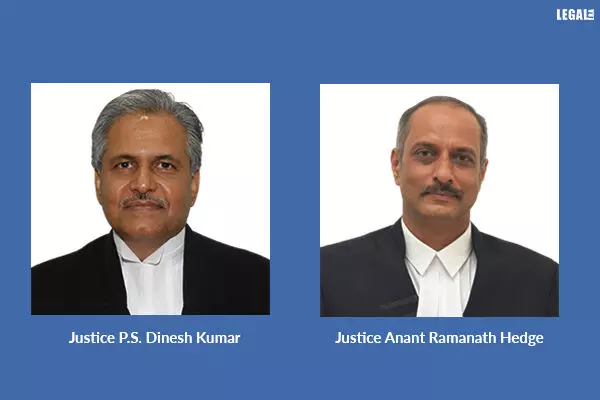- Home
- News
- Articles+
- Aerospace
- AI
- Agriculture
- Alternate Dispute Resolution
- Arbitration & Mediation
- Banking and Finance
- Bankruptcy
- Book Review
- Bribery & Corruption
- Commercial Litigation
- Competition Law
- Conference Reports
- Consumer Products
- Contract
- Corporate Governance
- Corporate Law
- Covid-19
- Cryptocurrency
- Cybersecurity
- Data Protection
- Defence
- Digital Economy
- E-commerce
- Employment Law
- Energy and Natural Resources
- Entertainment and Sports Law
- Environmental Law
- ESG
- FDI
- Food and Beverage
- Gaming
- Health Care
- IBC Diaries
- In Focus
- Inclusion & Diversity
- Insurance Law
- Intellectual Property
- International Law
- IP & Tech Era
- Know the Law
- Labour Laws
- Law & Policy and Regulation
- Litigation
- Litigation Funding
- Manufacturing
- Mergers & Acquisitions
- NFTs
- Privacy
- Private Equity
- Project Finance
- Real Estate
- Risk and Compliance
- Student Corner
- Take On Board
- Tax
- Technology Media and Telecom
- Tributes
- Viewpoint
- Zoom In
- Law Firms
- In-House
- Rankings
- E-Magazine
- Legal Era TV
- Events
- News
- Articles
- Aerospace
- AI
- Agriculture
- Alternate Dispute Resolution
- Arbitration & Mediation
- Banking and Finance
- Bankruptcy
- Book Review
- Bribery & Corruption
- Commercial Litigation
- Competition Law
- Conference Reports
- Consumer Products
- Contract
- Corporate Governance
- Corporate Law
- Covid-19
- Cryptocurrency
- Cybersecurity
- Data Protection
- Defence
- Digital Economy
- E-commerce
- Employment Law
- Energy and Natural Resources
- Entertainment and Sports Law
- Environmental Law
- ESG
- FDI
- Food and Beverage
- Gaming
- Health Care
- IBC Diaries
- In Focus
- Inclusion & Diversity
- Insurance Law
- Intellectual Property
- International Law
- IP & Tech Era
- Know the Law
- Labour Laws
- Law & Policy and Regulation
- Litigation
- Litigation Funding
- Manufacturing
- Mergers & Acquisitions
- NFTs
- Privacy
- Private Equity
- Project Finance
- Real Estate
- Risk and Compliance
- Student Corner
- Take On Board
- Tax
- Technology Media and Telecom
- Tributes
- Viewpoint
- Zoom In
- Law Firms
- In-House
- Rankings
- E-Magazine
- Legal Era TV
- Events
Karnataka High Court rules in favor of the assessee
The assessee was wrongly accused of using the Central Value Added Tax credit
The Karnataka High Court has held that the assessee cannot be liable for the suppression of the facts if the show-cause notice was issued based on the disclosures made in the balance sheet.
The bench comprising Justice P.S. Dinesh Kumar and Justice Anant Ramanath Hedge ruled against the tax department.
The respondent/assessee is in the business of manufacturing and clearing turbochargers, electric motors, and transformers that fall under the Central Excise Tariff Act, 1985.
The assessee has been providing taxable output services such as management, maintenance, and repairs. He obtained registration to pay the service tax on the services rendered and on the import of the services.
But based on the intelligence report, a show-cause notice was issued to him stating that apart from manufacturing, the respondent was also engaged in the trading of electrical goods under the trade name 'ABB'. He had wrongly utilized the Central Value Added Tax (CENVAT) credit on the trading activity.
In the notice, the respondent was called upon to show cause as to why Rs.5,68,00,000 should not be treated as a wrongful availing of CENVAT credit.
The respondent filed his reply that led to an April 2011 order by the Chief Commissioner of Customs. The Commissioner held that CENVAT credit was inadmissible for trading activities, and it was disallowed. The direction was issued in August 2010 for the appropriation of the sum in the CENVAT account and it was paid under protest.
The assessee then appealed before the Customs, Excise & Service Tax Appellate Tribunal (CESTAT).
The tribunal held that there was no suppression of facts on the part of the assessee with an intent to evade payment of tax. It confirmed the demand only for the normal period, i.e., disallowed appropriation of the payment made under protest in August 2010 and interest at the applicable rate and penalty. The penalty relating to the normal period was also set aside on the ground that there was much confusion about the availability of credit for trading activities.



